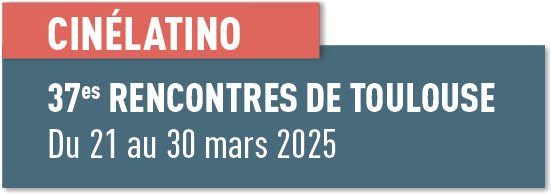Selection:
Director:
Country:
- Argentina
- Peru
- Paraguay
Format:
Type:
Film exhibited in Toulouse:
Durazno, creative documentary.
Prices :
- Bolivia Lab Best National Project 2012,
- Bolivia Lab Award for Latin America Distribution 2012,
- Audience Award Working Progress FESAALP.
Synopsis:
From the southern south, this is their story: Aoni, the Tehuelche hunter; Riu, the Rapanui builder; Ñande Sy, the Guarani shaman; Chaski, the Inca traveller; and Ze, the young z’oé; all of them are "PachaWawa" (Children of Earth), representatives of five Latin American native cultures. They are the advocates of the Earth and its resources, and become unintentional defenders after the arrival of a new and ravenous force known as “Likingos”. Aoni won’t be “a Tehuelche” but somehow “all” the Tehuelches. An idealization, like a sum of their traits and cosmology. They will inhabit in a timeless and pseudo-fantasy era, with an aesthetic and narrative style prior to the European conquest. On the other hand, the Likingos embody a representation of the consumerism and the economic anxiety of the “Like” era. It works as a metaphor of a disproportionate desire for material possessions and the unbridled exploitation of natural resources. They advance and consume, wrecking everything in their path, without any destination or cause. Throughout the 26 short films that make up this saga, the diverse and continuos situations that unfold in each episode will shape the story of an epic and fantastic feat about the defense of this land against such strange enemy.
Visual concept:
The characters are inspired by Latin America indigenous peoples, and also by timeless foreign cultures. Both encompass nuances that range from history, epic and mythology. PachaWawa! aesthetic is based on five pre-Columbian Latin America indigenous peoples: Tehuelches, Rapanuis, Guaraníes, Zoes and Incas, and it is also a timeless fusion of styles such as SteamPunk and Nordic-Scandinavian for the antagonistic characters: the Likingos, based on our society and the "Like" era. Likingos, just consume and waste natural resources disproportionately and in an uncontrolled way. The stop-motion puppets will be built from scratch and merged with digital pictures in watercolor style as backgrounds.







